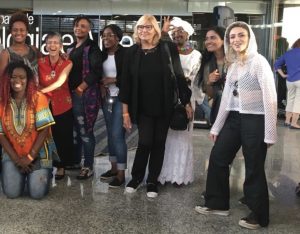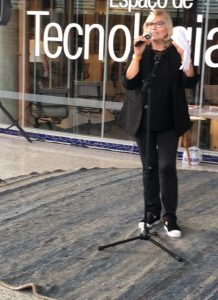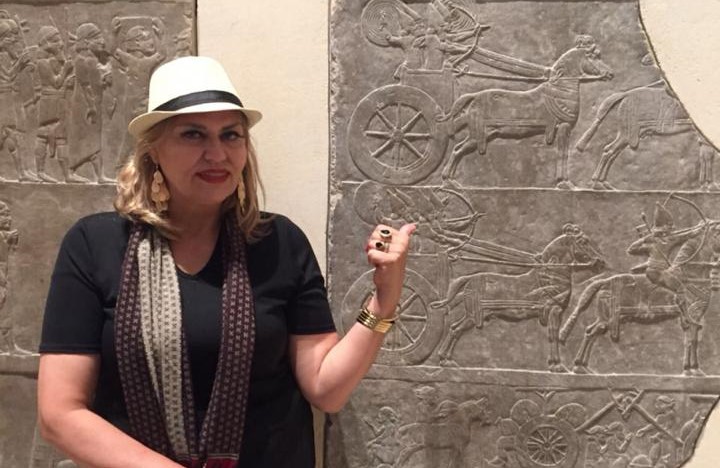São Paulo — Nisreen Khalid Dibdulahi is Iraqi. And a poet. She recites her poems in the Sarau Vozes Femininas (picture above), which brings together migrant and refugee women from different nationalities in Brazil. The event occurring in SESCs in São Paulo aims to create a space to discusse culture, values and challenges with 10 other women from Angola, Uganda, Mozambique, Congo, Nigeria, Senegal, Pakistan, Iran, Colombia and Venezuela.

The artists in the group were brought together for the performance in SESC. Previously composed with a mixed cast, the event became one that gives special attention to women, and has traveled around SESCs in the Greater São Paulo for around a year. “Since SESC talks a lot about female empowering, we had this idea. We are all persecuted. Not only we Brazilians but they are too. We are all women,” said Sarau Vozes Femininas producer Neide Salles. The event includes several elements, such as poetry, dance and singing, so that these women can tell their stories.
Iraqi poetry
Among those who recites poetry, Nisreen made sure to stress she also authors what she recites. “I’m a writer. The words come from the bottom of my heart. I write them in Arabic. Portuguese is a very difficult language; I can’t rhyme in it, but I can say what I mean. Thank God I manage to translate, which is very difficult,” she admitted.
Born in Bagdad, Iraq, in 1961, the writer built her first life there. “It is very hot today. But in Iraq is much, much more! The schools there have a cold schedule; everybody stays in the house when it’s hot,” she reminds, trying to say in her broken Portuguese that the Iraqi schools work only when it is cold. Nisreen was a private school principal in her city teaching preschool children.
As the war became more intense, however, life in her country became a daily tension. “The war had been fierce since 2003, when America invaded Iraq. The situation in Iraq was bad. No law, no peace. It was very dangerous to live there, with bombs, thieves. I was working in my country as a private school principal. I was a nice, rich person. After three years, it was very dangerous. I almost died. So, I ran and left Iraq,” she told.

Her second chance in life, says the Iraqi, she has found in Brazil since arriving in 2006. Now, she lives here with her husband, their five children and six grandchildren. “I started from scratch. Life is what matter. If life is gone, it doesn’t come back. If you lose a child? They don’t come back. Money, if you work hard, it does,” she declared.
Since she arrived, Nisreen has worked cooking, participating in soirées, and lecturing in schools. “I had much strenght, something very big that comes from within me. I’m a strong woman,” says Nisreen, who have always loved writing and remembers fondly of her departed brother, who was a journalist and a poet.
As a poet in soirées, she explains how she tries to bring the reality of Iraqi women to the Brazilian audience. “First, I recite in Arabic, then in Portuguese. If we have the time, I explain to them the story behind each poem,” says Nisreen, who explains how the audience reacts to her work. “Everybody likes it. They say they wished I could stay longer with them.”
Muslim, she explains her poetry has much to say about family, about faith. And about the Iraqi women’ strength. “In Iraq, the man are always at war and the woman stays alone in the house. She spends all her life alone, without her man. These women are noble, confident, religious. So, I recite and give my example as an Iraqi woman because my country is always war, war, war. That is why I do believe Iraqi women are noble, strong,” revealed the poet.
Translated by Guilherme Miranda




